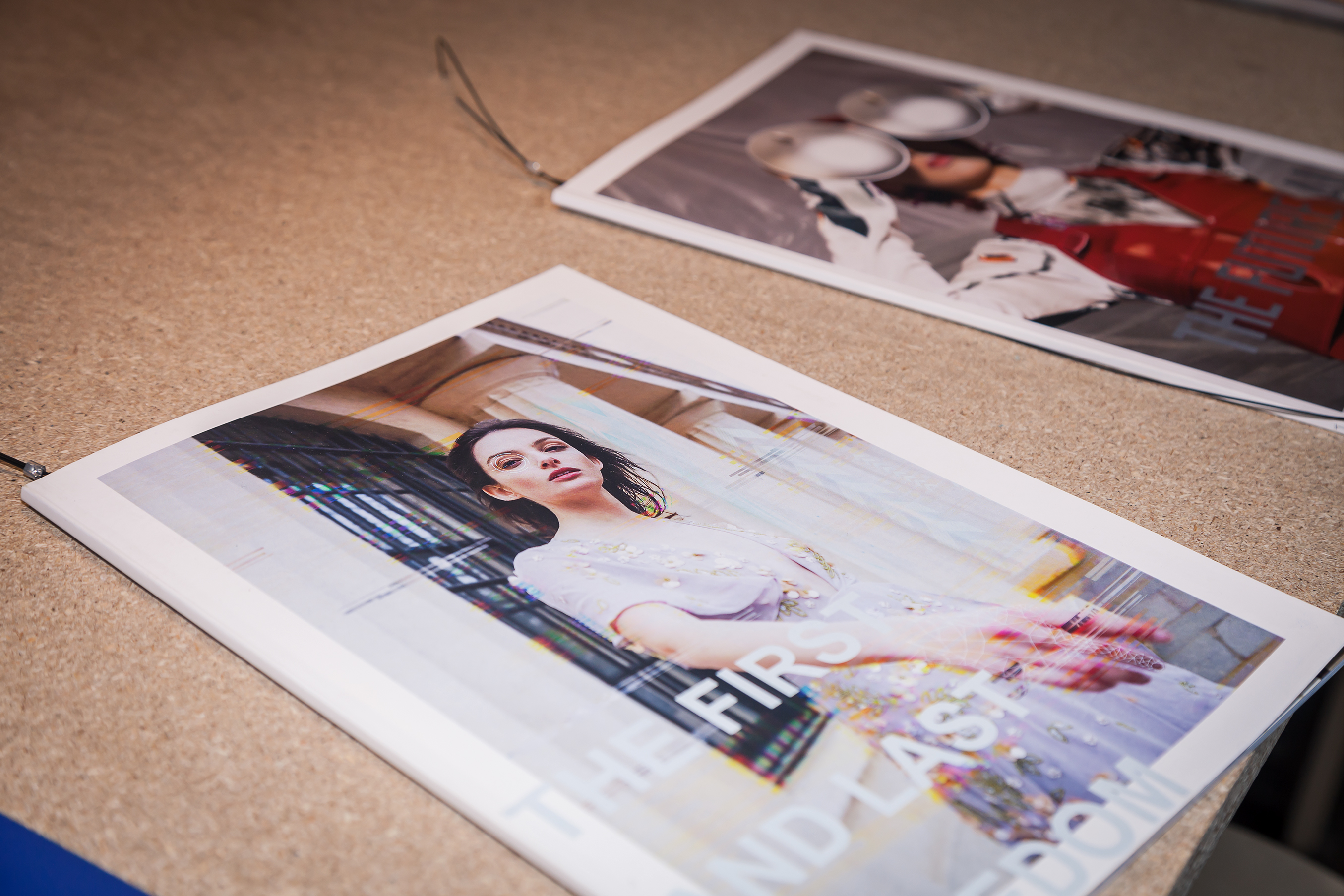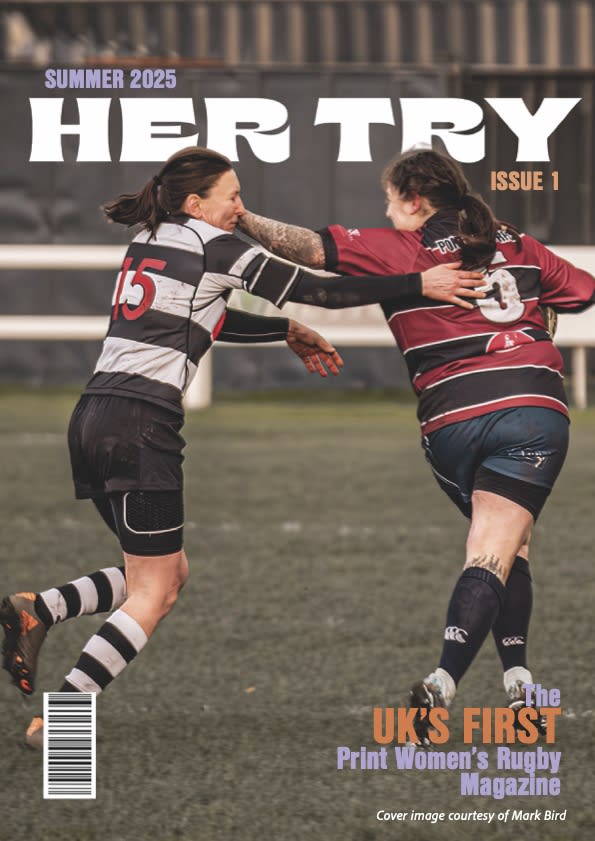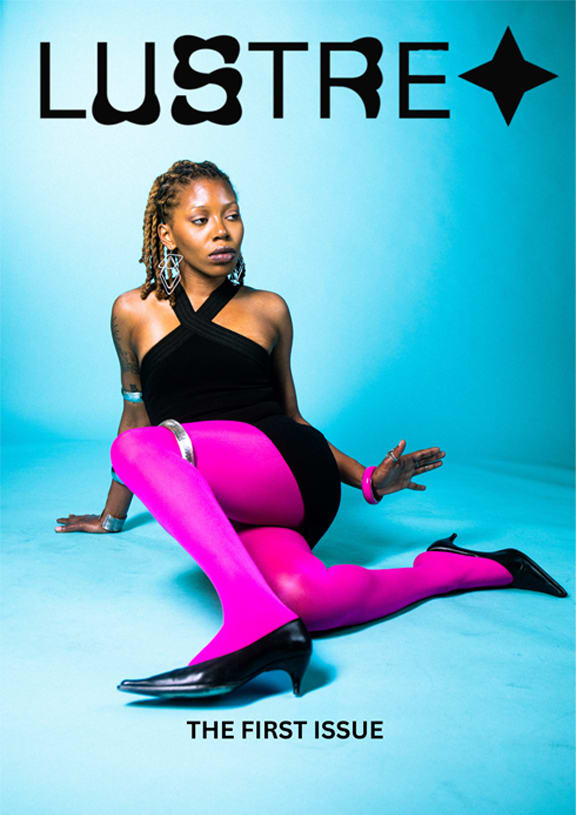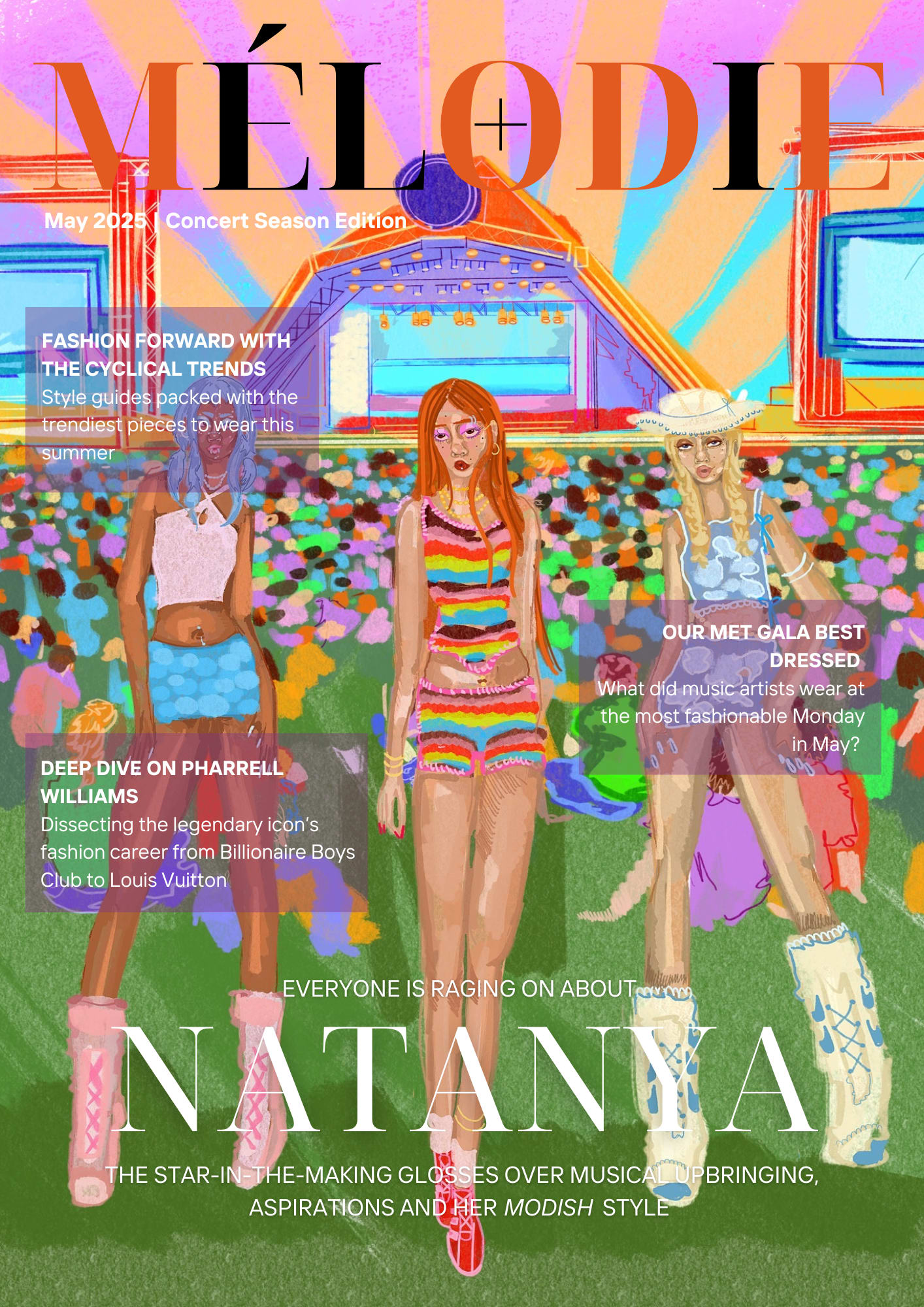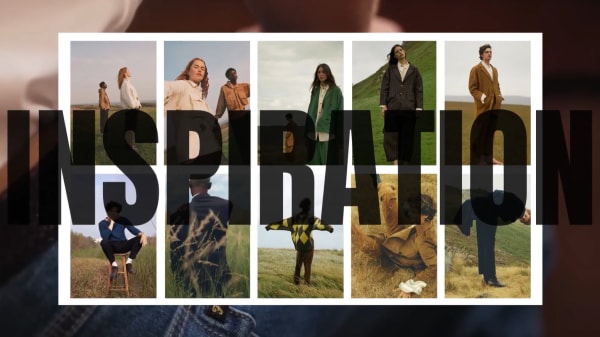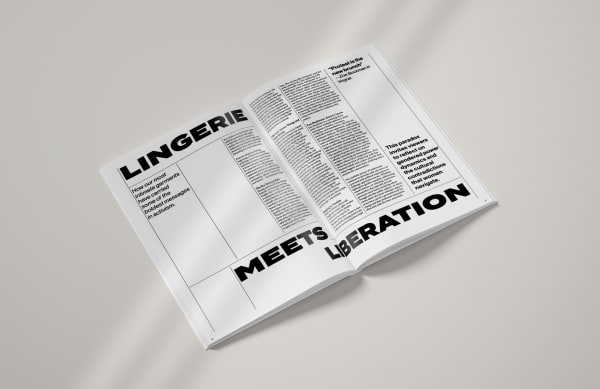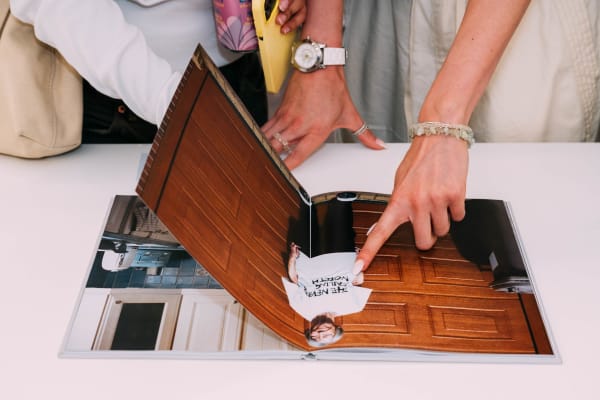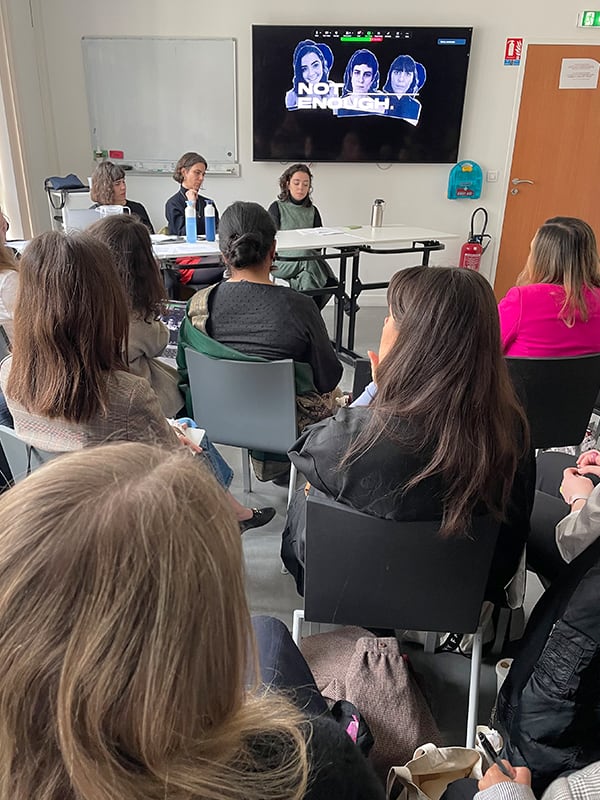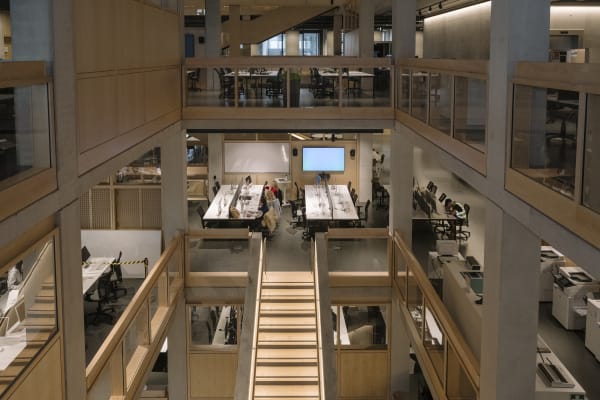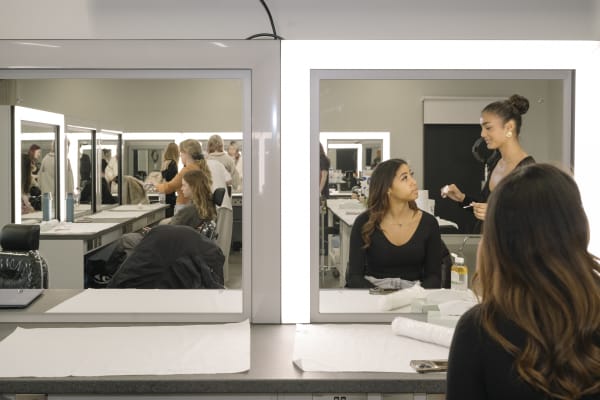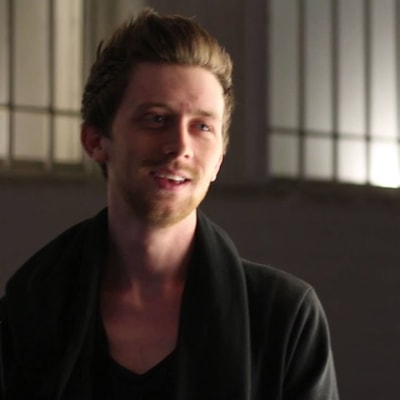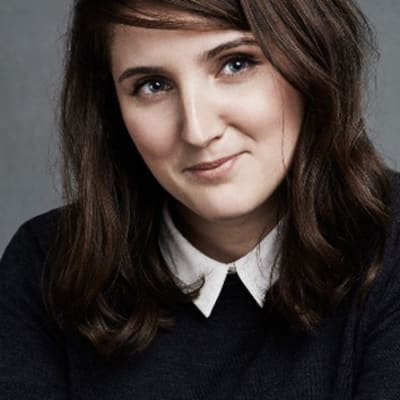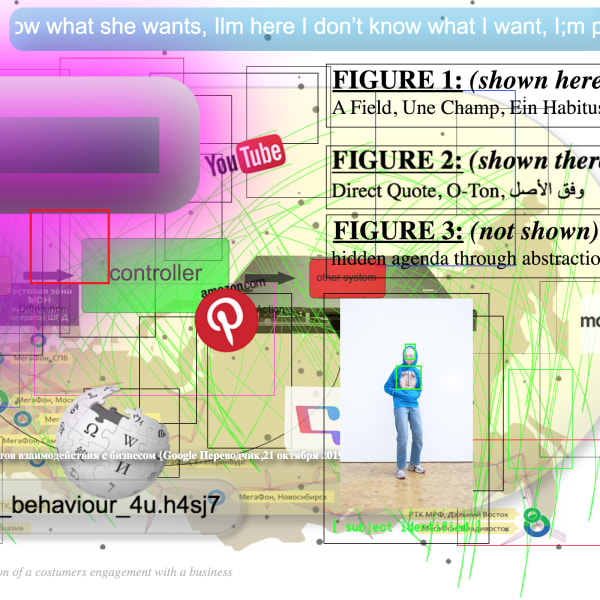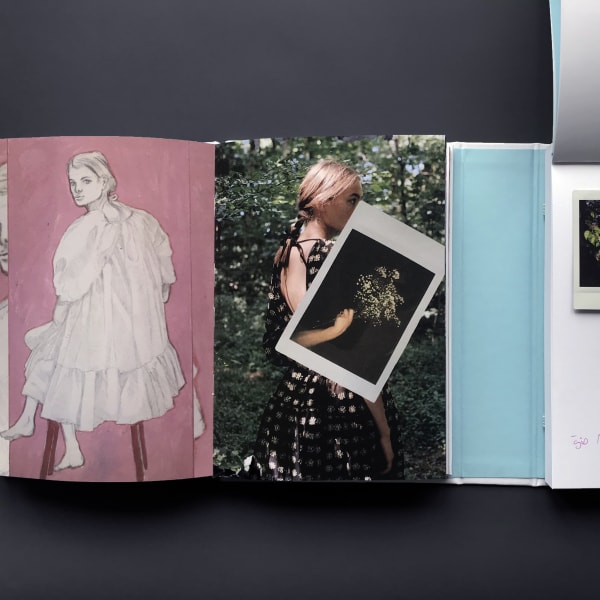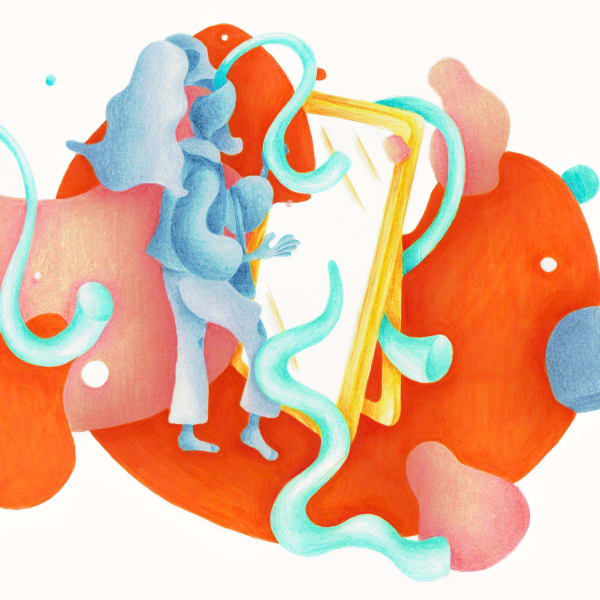Course units
Stage 1 (Level 4)
The units you will study in Year 1, Stage 1, Level 4 are as follows:
- Introduction to Fashion Communication (20 Credits)
You will be introduced to your course, its subject specialism and effective learning at undergraduate level. You’ll learn the practices and knowledge base needed to understand your discipline and develop skills for independent & collaborative learning, reflection and self-development.
- News and Feature Writing (20 credits)
You will embark on the core discipline of your course by learning about news and features including what they are and how they are crafted. Drawing on this knowledge you will start to develop an understanding of the essential written forms of journalism and its values, which underpin the storytelling skills you will use throughout your course. You will identify ideas and sources, research, write and edit. You will also attend lectures and take a test on media law, which will guide you on the ethical and legal principles of publishing.
- Content Creation for Fashion (20 credits)
In this unit, you will develop an understanding of the principles of social media and creative content for the fashion and lifestyle industries and media. You will learn how to develop strategies for planning and crafting impactful content appropriate for a range of audiences and platforms. You will engage with a range of technologies and learn how to use these for content creation.
- Fashion Broadcast (20 Credits)
You will develop an understanding of how to identify and analyse the forms and formats of video and audio relevant to the fashion and media industries. You will produce examples of these and submit a portfolio of outcomes that reflect your understanding of contemporary broadcast. You will accompany these with a professional file of relevant research and paperwork including consent forms, risk assessments and scripts as appropriate.
- Fashion Cultures and Histories (20 Credits)
You’ll take a philosophical and theoretical approach to the study of fashion and its role in representing and communicating identity. Understand key ways of thinking about fashion across its cultural, historical, social and political contexts. Engage in debate and analysis of fashion as a key marker of social and cultural change and a means of understanding the relationship between individuals and communities.
- Fashion Communication: Community of Practice (20 Credits)
Develop your understanding of the fellow disciplines in the Fashion Communication programme. Consider how this community of practice can contribute to a more socially conscious future and produce a proposal for a project that promotes change making through collaboration.
In Stage 1 you are required to complete 120 credits at level 4 in order to progress to Stage 2.
Stage 2 (Level 5)
The units you will study in Year 2, Stage 2, Level 5 are as follows:
- Critical Issues in Fashion Research (20 Credits)
Expand your critical understanding of fashion in a global context and examine emerging debates in fashion research. You’ll engage in collaborative research around current and emerging cultural issues and be guided through researching and writing about fashion across its social, historical, political and cultural contexts, building on the first-year unit Fashion Cultures and Histories. You’ll develop your own independent research path and interests.
- Fashion Writing (20 Credits)
You will focus on the core formats and styles of fashion writing by engaging with different forms of expressing, reporting, critiquing and forecasting fashion through written outcomes. You will build on the core skills from your Year One units to craft and submit a portfolio of written outcomes that closely explore and examine fashion, its key players and its wider cultural context.
- Fashion Communication: Situating Your Practice (20 Credits)
Explore and develop your fashion communication identity and position yourself within the professional fashion eco-system. You will examine the possibilities available to you now and in the future and determine the skills you need to develop your practice and professional profile. You will consider how your work has purpose, addressing your motivations and values.
- Fashion Journalism and Content Creation: Social Impact (40 credits)
You will work in groups to create a portfolio of outcomes that use fashion journalism and content creation to highlight issues of social justice and activism. You will identify issues to investigate and use your discipline knowledge and skills to activate a campaign for change. You will be assessed on your group and individual work.
- Fashion Communication: Professional Practice Placement/Portfolio (20 Credits)
You have an option to choose:
Placement
Undertake a short-term placement in industry which is suitable for your own development and career aspirations. The Graduate Futures Placement Team provides support to get a placement and you can directly apply to companies.
Portfolio
Experiment with creative practice and develop an outcome for your portfolio in response to an industry brief. Using a process of design principles you will define, ideate, and test your ideas with an external audience in mind. There will be support throughout from both academic and industry practitioners.
In Stage 2 you are required to complete 120 credits at level 5 in order to progress to Stage 3.
Optional Diploma Year
CCI Creative Computing
Between years 2 and 3, you can undertake the year-long Diploma in Creative Computing. This will develop your skills in creative computing alongside your degree. After successfully completing the diploma and your undergraduate degree, you’ll graduate with an enhanced degree: BA (Hons) Fashion Journalism and Content Creation (with Creative Computing).
Industry DIPS
This optional diploma can be taken between years 2 and 3. With support from your tutors, you’ll undertake an industry placement for a minimum of 100 days/20 weeks. As well as developing industry skills, you’ll gain an additional qualification upon successful completion.
Enterprise DIPS
This optional diploma can be taken between years 2 and 3. With support from your tutors, you’ll undertake an enterprise placement year where you will explore a business idea from proposal to minimal viable product (MVP). As well as developing enterprise skills, you’ll gain an additional qualification upon successful completion.
CCI Apple Diploma
Between years 2 and 3, you can undertake the year-long Diploma in Apple Development. This will give you an opportunity to become an accredited apple developer alongside your degree. After successfully completing the diploma and your undergraduate degree, you’ll graduate with an enhanced degree: BA (Hons) Fashion Journalism and Content Creation (with Apple Development).
Stage 3 (Level 6)
The units you will study in Year 3, Stage 3, Level 6 are as follows:
- Fashion Journalism: Professional Working (20 Credits)
Experience the same pace and intensity as journalists in the fashion media as you contribute stories in a range of formats to the course’s live media outlet. You will learn how to apply SEO to expand the reach of your work and you will take on a role of responsibility during an editorial cycle, working collaboratively to ensure the smooth running of the site. As you develop your understanding of in-depth information gathering, tone of voice and content-packaging, you will also create your own digital portfolio of published work.
You have an option to choose:
- Creative Industries: Theories and Practices (40 credits)
In this unit, you’ll complete an independent research project and engage with industry professionals to learn about current debates and issues that shape and inform cultural production across media, communication and performance. You’ll be encouraged to respond to these debates in the form of an extended essay with supporting research materials. This unit will equip you with critical thinking, literacy and communication skills for both academic and professional contexts.
OR
- Fashion Communication: Practice and Research (40 Credits)
Explore an area of interest in Fashion Communication by combining your creative practice with a theory and process led enquiry. Your chosen topic should relate to your field of practice, addressing contemporary and critical debates. You’ll learn about practice-based research, define a research area, and respond to it, testing your ideas in preparation for the Independent Project unit, through a creative process and academic writing.
- Independent Project: Fashion Journalism and Content Creation (40 Credits)
Demonstrate your ability to deliver an editorial concept from idea to product, using all the journalism, content-creation and research skills acquired during your course. You will produce a portfolio of fashion journalism and/or content following extensive research and analysis. You will analyse your audience, market, competitors and the topic in depth using a variety of methods.
- Professional Portfolio Presentation (20 credits)
Craft a portfolio of work designed to support your future employability or academic progression. You will analyse opportunities within your chosen sector and curate and target your own work accordingly. You will present this portfolio for assessment and write a reflective essay on your skills and knowledge development and how you may apply them in the future.
In Stage 3 you are required to complete 120 credits at level 6.
A 20-credit unit is approximately equivalent to 200 hours of learning time, which includes a mixture of taught time, independent study and assessment.
All students are entitled to a tutorial package that consists of:
- one induction tutorial (group or one to one);
- one tutorial per block for the duration for their course of study at LCF;
- group tutorials as required;
- an appropriate level of confidentiality;
- academic tutorials are embedded into units. Extra academic and pastoral tutorials are available by arrangement
